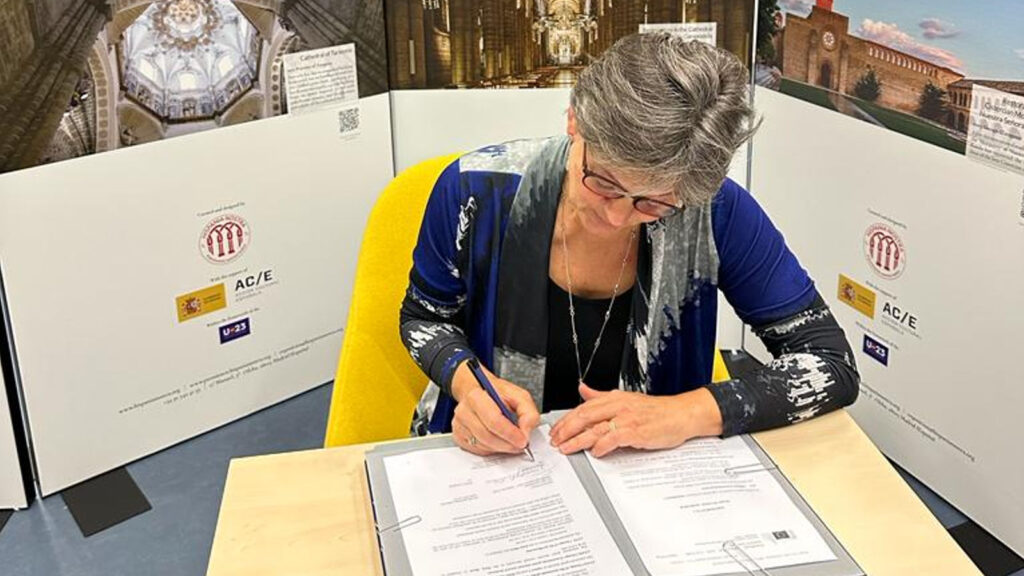The European Commission has allocated an additional sum of €1 million towards the European Heritage Hub pilot project to ensure its many activities duly involve and benefit partners from Ukraine, Moldova, the Western Balkans and the Caucasus.
An amendment to the grant agreement of the European Heritage Hub pilot project was signed between the European Commission and Europa Nostra, in its capacity as Project Lead, to strengthen the action of the Hub in Ukraine, Moldova, the six countries of the Western Balkans (Albania, Bosnia and Herzegovina, Kosovo*, Montenegro, North-Macedonia and Serbia) and the three countries of the Caucasus (Armenia, Azerbaïdjan and Georgia) with an additional sum of €1 million, 90% of which is funded by the EU (€988,976). This brings the total budget of the pilot project to €4,2 million.
The additional budget sees the creation of a new work package under the European Heritage Hub, namely ‘Amplifying the Hub Network and Impact in 11 countries which are not (yet) members of the EU’.
“The Hub will strengthen existing bridges and build new ones to enhance the heritage ecosystem’s capacity to respond effectively to the challenges of Europe’s green, digital and social transformation. It is essential for Ukraine, Moldova, the Western Balkans and the Caucasus countries to become better integrated in this wider European heritage movement”, stated Sneška Quaedvlieg-Mihailović, Secretary General of Europa Nostra and Project Leader of the European Heritage Hub.

The participation and input of heritage stakeholders from the regions in question will be mainstreamed across the Hub project’s activities, including in person events and peer-learning visits, the preparation and publication of policy recommendations and research papers, and the development of synergies with existing projects. This expanded engagement will also include the launch of a Small Grants Scheme for heritage-related projects led by civil society organisations in the above-mentioned countries.
The European Heritage Hub pilot project launched in May 2023, responding to the need to set up a more permanent heritage hub in Europe to bring together various stakeholders with the view of ensuring a more structured and systematic cooperation and coordination of action at all levels of governance, from local to European and international.
* This designation is without prejudice to positions on status, and is in line with UNSCR 1244/1999 and the ICJ Opinion on the Kosovo declaration of independence.




